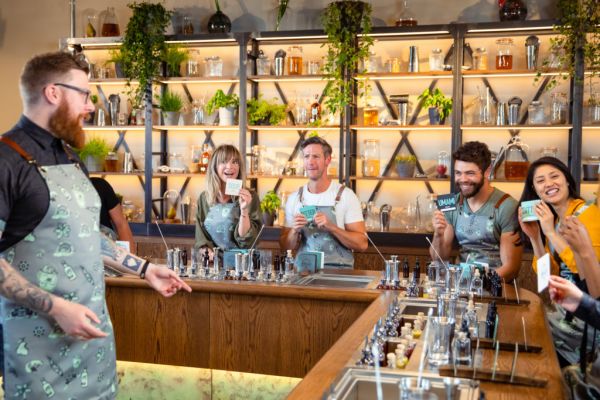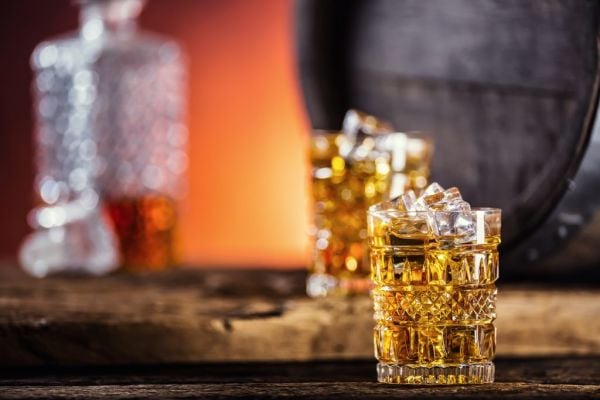Many vintners would love to own enough wine country to cover Manhattan twice over. Not Treasury Wine Estates Ltd., maker of $850-a-bottle Penfolds Grange.
“We don’t have to own all the vineyards,” said Mike Clarke, a former Coca-Cola Co. executive who took over as chief executive officer of the world’s second-biggest wine company in March. Assets including Treasury’s wineries and bottling plants “could be in someone else’s hands.”
In an industry where winemakers cherish their links to the land so closely that some have occupied the same sites for centuries, that’s a radical proposition, according to Phil Reedman, an independent wine consultant who spent nine years buying new world vintages for Tesco Plc.
“Fine wine is very strongly linked to the winery,” Reedman said by phone from Australia’s Barossa Valley. “Premium wineries sell themselves on having ownership of land, growing their own fruit, and taking grapes from their vineyards to the bottle.”
The Staffelter Hof winery in Germany’s Moselle valley has been operating since the 9th century and Florence’s Frescobaldi family owns vineyards which supplied wines to the Renaissance sculptor Donatello.
Clarke’s taking a different tack, looking to apply lessons he learned selling soda, peanut butter and instant noodles at Coca-Cola, Kraft Foods Inc. and Premier Foods Plc to recover from a A$241 million loss ($210 million).
‘Growth Agenda’
He’s studying Treasury’s 12,778 hectares (31,600 acres) of vineyards and A$659 million of wineries, cellars and bottling plants to find assets that can be sold off and leased back to free up funds to invest more productively. The wine estate alone would be enough to blanket Manhattan Island, which covers about 14,690 acres, twice over.
“We can achieve our growth agenda without owning some of this infrastructure,” Clarke, 50, said in an 11 November phone interview.
Treasury rose 1.5 per cent to A$4.71 at 11:41 a.m. in Sydney trading, headed for the highest closing price since 12 November. The stock earlier gained as much as 3.1 per cent. Australia’s benchmark S&P/ASX 200 index fell 0.2 per cent.
While he’s not planning an immediate sale of all Treasury’s physical assets, ultimately “brands, know-how, knowledge and strategic thinking are what we want to own,” he said. The company needs to change from “an agricultural company to a brand-driven, marketing-led company.”
The strategy mimics Coca-Cola’s century-old policy of focusing on brand development by leaving costly businesses such as distribution to independent bottlers. Accessing farms and factories through long-term contracts rather than ownership will give Treasury a chance to improve the return on the money it’s investing, Clarke said.
‘Capital Intensive’
“The key problem the wine industry has is that it’s capital intensive,” according to Reedman.
Clarke’s arrival at Treasury in March put him in charge of a company whose chief executive and chief financial officer left within months of each other last year amid a A$160 million writedown and reduced profit forecasts in the US, Australia and China.
Since then he’s written off another A$260 million of assets and seen private equity bidders including KKR & Co. fail to follow through on indicative takeover offers that valued the business at A$3.4 billion.
To restore profits, he’s been selling discount wine fridges to encourage drinkers to buy more bottles and clear retailers’ stock; increasing marketing spending 50 per cent; and stripping Treasury’s brand list down to a core of 10 to 15 labels.
Depressing Prices
He’s also changed the release dates of the Penfolds label to avoid flooding the market with bottles and depressing prices in the last quarter of the company’s financial year, and announced plans to stop production at the Ryecroft winery in South Australia’s McLaren Vale region. The site, the main plant for the Rosemount label, has been operating at about half capacity for several years.
Beyond that, Clarke wants to turn the Etude label into a worldwide pinot noir brand that uses New Zealand grapes in New Zealand and Australian grapes in Australia. At present it’s only made and mostly sold in the US. The move would allow Treasury to pool its marketing budget and allow Etude “to be a stronger brand,” he said. “The stronger your brands are, the more adaptable you will be and the more resilient you will be.”
Winemaking Tradition
It also goes against centuries of winemaking tradition, which links wines to individual regions, wineries or even vineyards. Severing the links between winemaking and the land has never been tried on this scale before, said Reedman.
It’s not completely unprecedented: most winemakers buy a portion of their grape juice from independent growers, even when they have their own vineyards. French Champagne houses have global brands and don’t own all their vineyards, Reedman said; most Champagne bottles sold are non-vintage, blended from wines fermented in a variety of years.
“I absolutely get the logic of it and as a retailer in my former life I’d love to have cracked that,” he said, referring to the proposed global branding of Etude. Still, “there aren’t many examples of people pulling it off.”
Bloomberg News, edited by Hospitality Ireland









